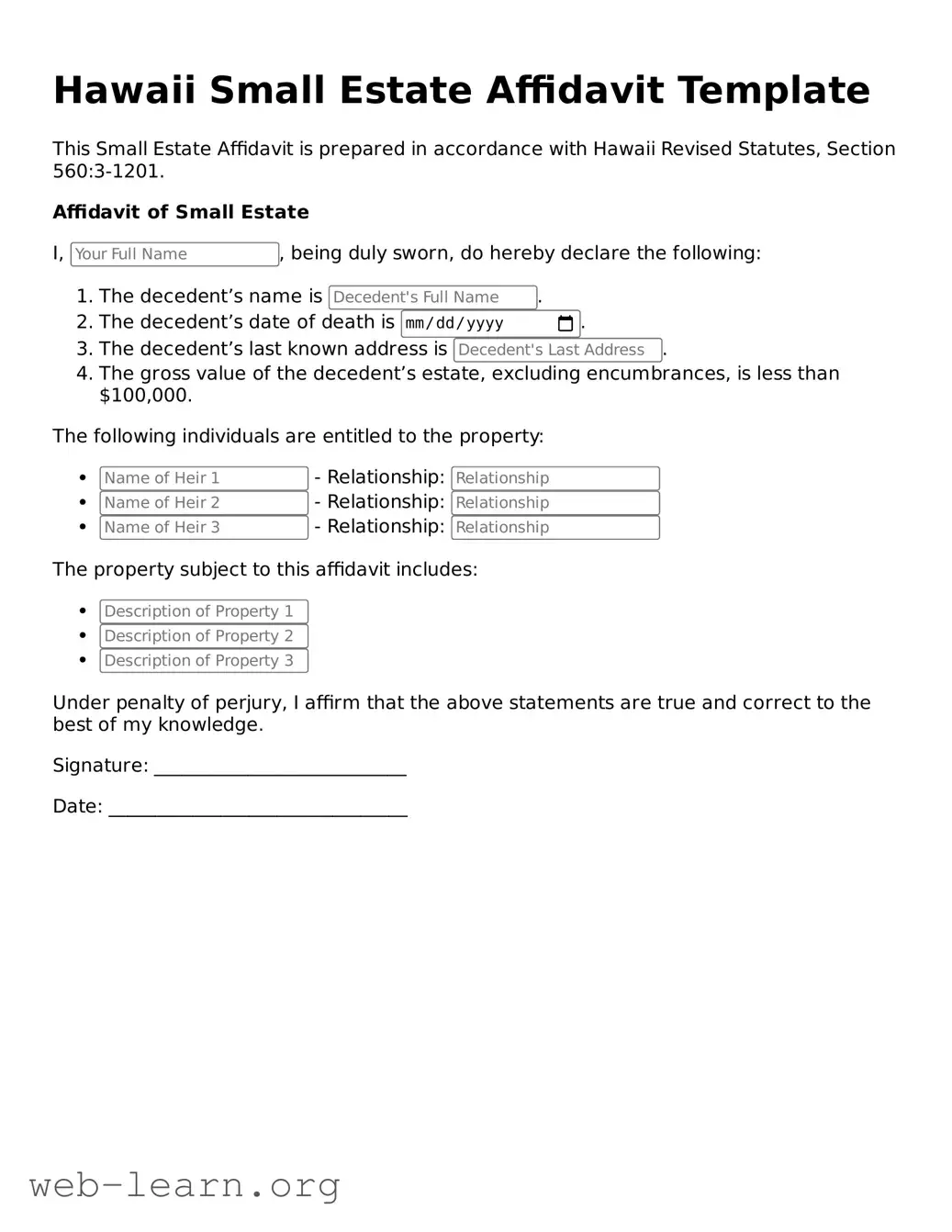Filling out the Hawaii Small Estate Affidavit form can seem straightforward. However, there are several common mistakes that individuals often make, leading to delays or complications in the process. Awareness of these issues can significantly improve the likelihood of a smooth experience.
One significant mistake is not providing accurate information about the deceased. The form requires specific details such as the full legal name, date of death, and address at the time of death. Omissions or inaccuracies can raise questions and could potentially invalidate the affidavit.
Another frequent error involves the identification of assets. Those filling out the form may overlook certain assets or misclassify them. Items that should be included could range from real property to bank accounts. Every asset needs to be documented properly to fulfill the form's requirements.
Individuals sometimes fail to list all heirs or beneficiaries. This oversight can complicate matters, especially if additional heirs emerge after the affidavit is submitted. Including everyone who would inherit under Hawaii’s intestacy laws is crucial to prevent future disputes.
In some cases, people underestimate the importance of signing the affidavit in the presence of a notary public. The affidavit must be notarized to have legal standing. Without this step completed, the entire process can be hindered.
Failure to attach necessary supporting documents is another common mistake. The form requires certain documents, such as a copy of the death certificate. Not including these documents can lead to further scrutiny from the court.
People often ignore specifying the relationship to the deceased. This detail is essential as it establishes the applicant's right to file the affidavit. Omitting this information can lead to questions about the validity of the application.
Inaccurate figures can create significant problems. When listing the value of the estate, some may either overvalue or undervalue assets. Accurate valuations are crucial as they affect how the estate is handled and distributed.
Another mistake occurs when individuals forget to check for updates to the law. Hawaii's laws regarding small estates may change. Those filling out the form should always ensure they have the most current information to avoid missteps.
Finally, people often neglect to keep copies of everything submitted. Retaining copies of the affidavit and associated documents is wise. This practice allows for easy reference and can help if additional questions arise at a later date.
